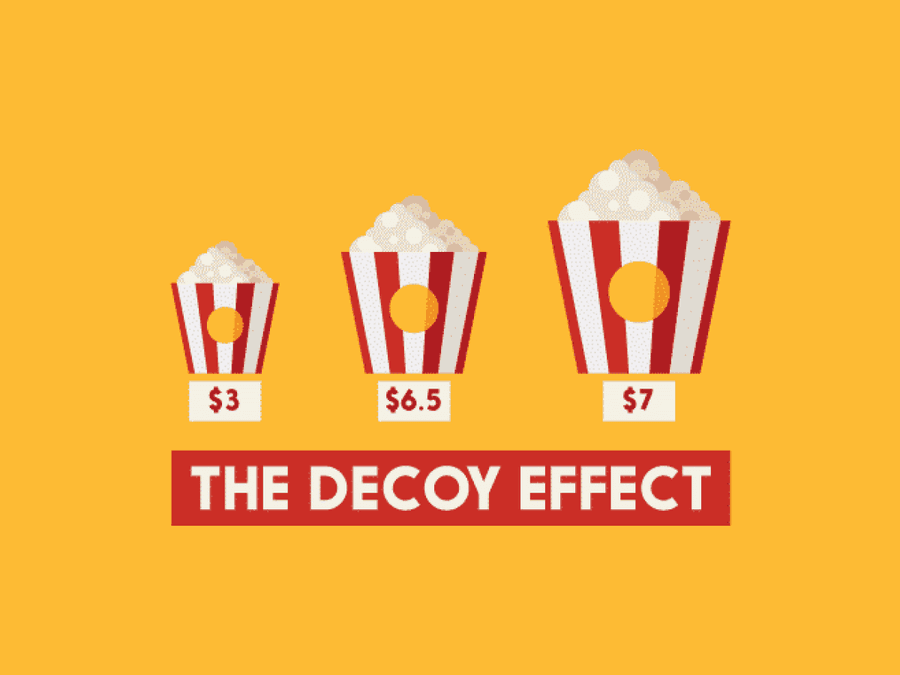The ambiguity effect
Research shows that when we have to decide between two possible outcomes, one with a known probability and one with an unknown probability, we tend to choose the option with the known probability.
We skip over the difficult part of making estimates or guesses about the ambiguous option and opt instead for the familiar outcome.
86
2.67K reads
CURATED FROM
IDEAS CURATED BY
The idea is part of this collection:
Learn more about psychology with this collection
How to handle conflicts
How to identify and regulate emotions
How to develop self-awareness
Related collections
Similar ideas to The ambiguity effect
The decoy effect
It is a cognitive bias: we tend to have a specific change in preferences between two options when also presented with a third option that is asymmetrically dominated.
This is the secret agent in more decisions than we could imagine. It even helps us decide whom to date...
Complexity Bias
We are inclined to believe that complex solutions and explanations are better than simple ones. The perception of complexity often leads to avoidance.
What you can do about it:
- Instead of seeking to understand a concept fully,
How to capitalize on the Zeigarnik effect
- Reduce your tendency to procrastinate. If you have a task you've been avoiding, begin with the smallest thing to be done. The desire to close the loop will help you take small steps to get it done.
- Get people to take note of what you're saying. Try...
Read & Learn
20x Faster
without
deepstash
with
deepstash
with
deepstash
Personalized microlearning
—
100+ Learning Journeys
—
Access to 200,000+ ideas
—
Access to the mobile app
—
Unlimited idea saving
—
—
Unlimited history
—
—
Unlimited listening to ideas
—
—
Downloading & offline access
—
—
Supercharge your mind with one idea per day
Enter your email and spend 1 minute every day to learn something new.
I agree to receive email updates
